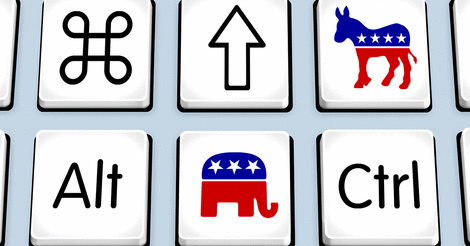Your podcast discovery platform
Curious minds select the most fascinating podcasts from around the world. Discover hand-piqd audio recommendations on your favorite topics.

piqer for: Global finds Technology and society
Prague-based media development worker from Poland with a journalistic background. Previously worked on digital issues in Brussels. Piqs about digital issues, digital rights, data protection, new trends in journalism and anything else that grabs my attention.
If Silicon Valley Was In Europe, It Would Probably Vote Liberals And Democrats
Silicon Valley is getting increasingly more mixed up in politics. On the one hand, some of the tech giants have become increasingly vocal about their anti-Trump views, for example, taking a stance against his rollback of DACA and condemning his order on Muslim immigration. On the other hand, we have other members of the U.S. tech industry, including PayPal co-founder Peter Thiel, planting themselves in Trump’s corner.
This political awakening, topped with the industry’s growing economic power, positions Silicon Valley as a significant player on the political scene. But if technologists become a political force, what sort of policies will they push? As The New York Times points out, a new study by political scientists at Stanford University might offer some indication.
“Technologists could help push lawmakers, especially Democrats, further to the left on many social and economic issues. But they may also undermine the influence of some of the Democrats’ most stalwart supporters, including labor unions. And they may strive to push Democrats away from regulation on business,” writes The New York Times.
A detailed survey of more than 600 respondents showed that tech entrepreneurs favour greater wealth redistribution, universal health care, open immigration, free trade, gay rights and gun control. However, there is something that puts them at odds with Democrats and edges them closer to most Republicans, namely their support of less government regulation, especially of labour.
“The tech elite’s mix of views is unique (..). It is genuinely difficult to think of any politician who aligns with that mix,” writes the New York Times.
What seems so groundbreaking in the U.S. two-party system, is rather unremarkable in Europe, where centrist parties espouse both neoliberal economics and progressive stances on socio-political issues. Given their new electorate in the San Francisco Bay Area, maybe European Liberals and Democrats should consider possible expansion overseas.
Stay up to date – with a newsletter from your channel on Technology and society.
